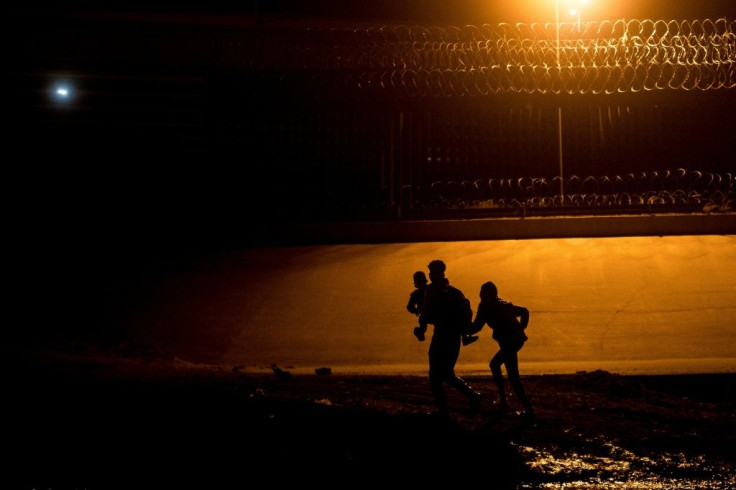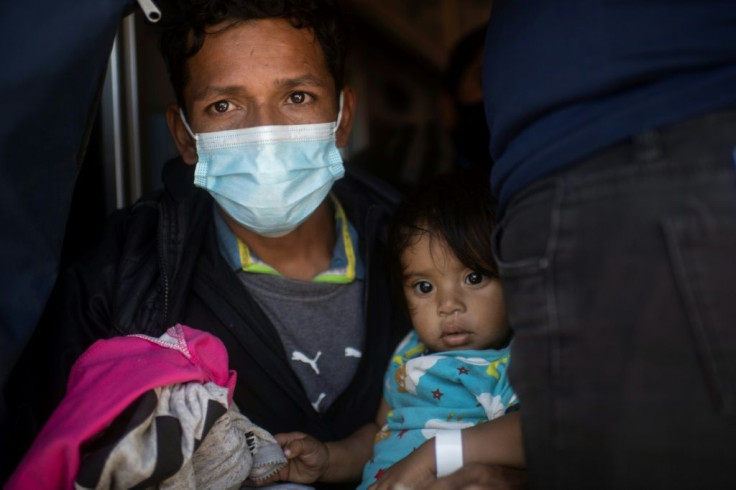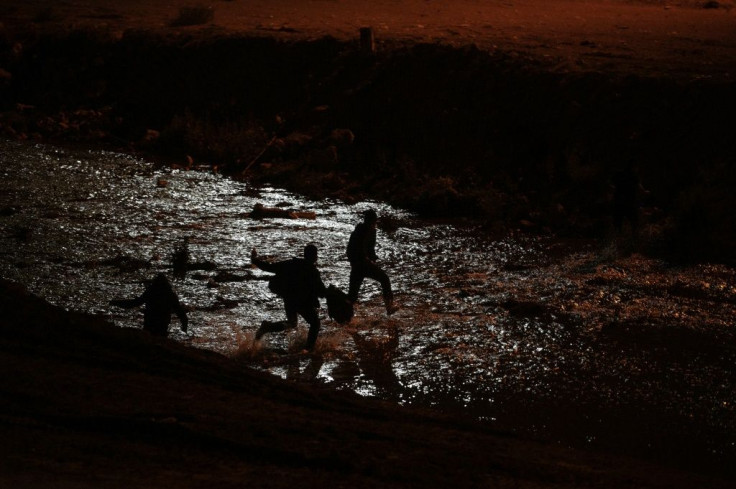On US-Mexico Border, A Revolving Door For Many Migrants
Honduran migrant Fernando Sanchez paid a trafficker $7,000 to smuggle him to the United States with his three-year-old daughter, but they spent just days on US soil before being deported.
For many undocumented migrants, particularly adult men, what they hoped would be an open door thanks to US President Joe Biden has turned out to be a revolving door back to Mexico.
Sanchez was deported to the Mexican border city Ciudad Juarez along with dozens of other migrants under a rule known as Title 42 that was introduced a year ago to prevent the spread of Covid-19.

Now in debt to friends who loaned him money to pay the trafficker, the 38-year-old still clings to hope that Biden, who he calls "our president," will help him.
"I know that Joe Biden, our president, can open the door for us and say 'come in everyone who is suffering,'" he said.
Sanchez, now staying with his daughter at a shelter in Ciudad Juarez, asked AFP to change his name to avoid potential problems with the US authorities in the future.

While some migrants, notably unaccompanied minors and women with small children, are now being allowed to stay, men who are caught by US border patrols are usually sent back quickly.
In February, the US Customs and Border Protection agency detained about 100,000 people at the southern border -- a 28 percent increase over January.
Most came from Central American nations Honduras, Guatemala and El Salvador, which are wracked by poverty and gang-related violence.

Undocumented migrants -- some with children in their arms -- cross the Rio Grande river between Mexico and the United States day and night in the hope of obtaining asylum.

AFP reporters saw a girl who appeared to be around nine years old quickly splash through the river and wait next to a column on the other side for the border patrol to arrive.
In February, more than 9,000 unaccompanied children, mostly from Mexico and Central American, made the crossing.
Not all of them make it alive: one nine-year-old was found dead this month on an island in the middle of the river, US authorities said Friday.

Many migrants say they have been filled with hope by Biden's immigration reforms, although the US president has urged them not to come.
"They began to come thinking that the border had already been opened but it wasn't true," said Father Francisco Javier Calvillo, head of Casa del Migrante, one of the main shelters in Ciudad Juarez.
Figures from the Mexican authorities underline the rising tide of people heading north.
The number of undocumented migrants detected in Mexico has risen 18 percent so far this year -- to 31,492 -- compared with the same period of 2020, the National Migration Institute said this week.
Three-quarters of them were male adults -- mainly Hondurans -- while 14 percent were women and 11 percent were minors.
At the Paso del Norte bridge, which connects Ciudad Juarez with El Paso, Texas, dozens of disappointed migrants are sent back every day.
"That's life," one of them said despondently as he walked towards Ciudad Juarez.
In contrast, those allowed to enter the United States to continue their asylum process thanks to one of Biden's reforms looked overjoyed.
Since February 19, about 3,600 people have been allowed in due to the reversal of predecessor Donald Trump's policy of making asylum seekers wait in Mexico while their cases are resolved.
Biden's opponents have seized on the influx to accuse him of creating a "crisis" at the border with a naive immigration stance.
The US president has defended his handling of the situation, which has become his largest political liability two months into his administration, after Trump sought to seal off the border.
Facing US pressure to curb the influx, Mexico announced last week that it would step up security along its southern frontier with Guatemala to stop child migrants crossing.
For deported migrants at the US-Mexican border who still dream of starting a new life in the United States, the only option is to wait.
"We have no other choice but to keep going here," said a 24-year-old woman from El Salvador who traveled with her husband and two children.
© Copyright AFP 2024. All rights reserved.





















